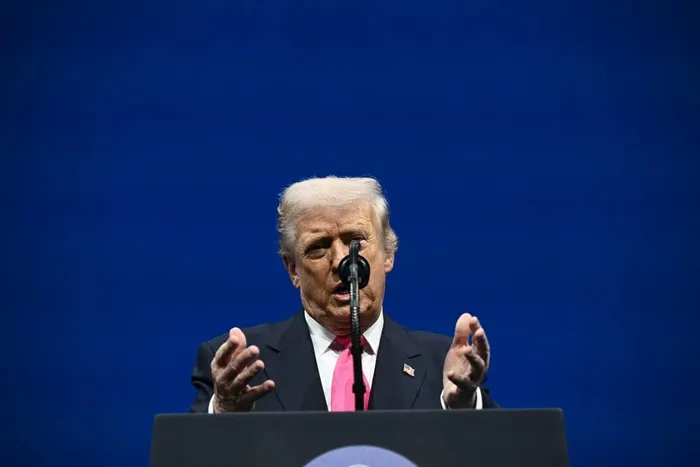‘Trump has a 4-year-old mentality’: Economist Jeffrey Sachs slams Trump’s G20 snub as a ‘tantrum’

US President Donald Trump delivers remarks at the US-Saudi Investment Forum at the John F. Kennedy Center for the Performing Arts in Washington, DC.
Image: Brendan Smialowski/AFP
World-renowned American economist and public policy expert, Professor Jeffrey D. Sachs, delivered a critique of United States President Donald Trump on Thursday, describing his initial decision to boycott the G20 Summit in South Africa as the result of a "tantrum" and a "four-year-old mentality".
The remarks, delivered during the University of South Africa’s (UNISA) 2025 Founder’s Lecture in Pretoria on Thursday, provided a pointed analysis of fading Western dominance and the geopolitical context surrounding the anticipated summit in Johannesburg.
Professor Sachs, widely regarded as one of the most influential economists of the modern era, slammed US President Donald Trump’s snubbing of the G20 Summit.
Addressing the question of why Mr Trump was not attending the event, Sachs stated: "because he has a four-year-old mentality and he is having a tantrum".
Sachs elaborated on the nature of this tantrum: "What is the tantrum? That the rest of the world is saying 'We don't want a king. He would come here as just one of 20 or 21 leaders. And he doesn't want that, so he is having tantrum".
The economist also linked the President’s absence to broader Western geopolitical anxieties, noting that the "world is not ending. But Europe and the United States are having a fit. That is why Trump is home today". He stressed the shifting global power dynamics, concluding: "You cannot build a world today outside of China. That is why BRICS is such a threat to them".
Sachs delivered his keynote address under the theme “Solidarity, Social Justice and Reclaiming Futures, the roles of universities in contested geopolitics”. He launched direct critiques against both President Trump and Israeli Prime Minister Benjamin Netanyahu, accusing both of contributing to global instability.
Sachs’s comments came as confusion mounts regarding US participation in the G20, which opens this Saturday.
US President Trump had previously announced that his administration would boycott the two-day meeting of rich and developing nations, repeating claims that South African President Cyril Ramaphosa’s government is violently persecuting a white minority.
Trump had previously targeted South Africa for criticism since returning to office, including a tense meeting with President Ramaphosa in May.
However, on Thursday, Ramaphosa announced that the United States government had indicated a "change of mind" and wanted to participate in a reverse of its boycott.
Ramaphosa stated that South Africa had received communication from the US at "the 11th hour" and was working on logistics to accommodate them.
The US initially advised South Africa that "there should be no declaration adopted" at the summit due to the US being absent, insisting instead on a toned-down statement from South Africa only. The US will take over the rotating presidency of the G20 from South Africa.
Professor Sachs, who also holds global leadership roles including President of the United Nations Sustainable Development Solutions Network, concluded his remarks by urging institutions of higher learning to act as intellectual anchors and defend truth and justice in an age of contested geopolitics and misinformation.
He commended South Africa for its leadership on global justice, specifically praising the country’s decision to take Israel to the International Court of Justice (ICJ) over the Palestine matter. Sachs warned that humanity is at a crossroads and institutions must help guide the world away from violence toward justice, peace, and sustainable development.
IOL
Related Topics: